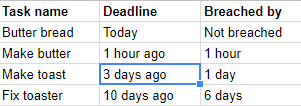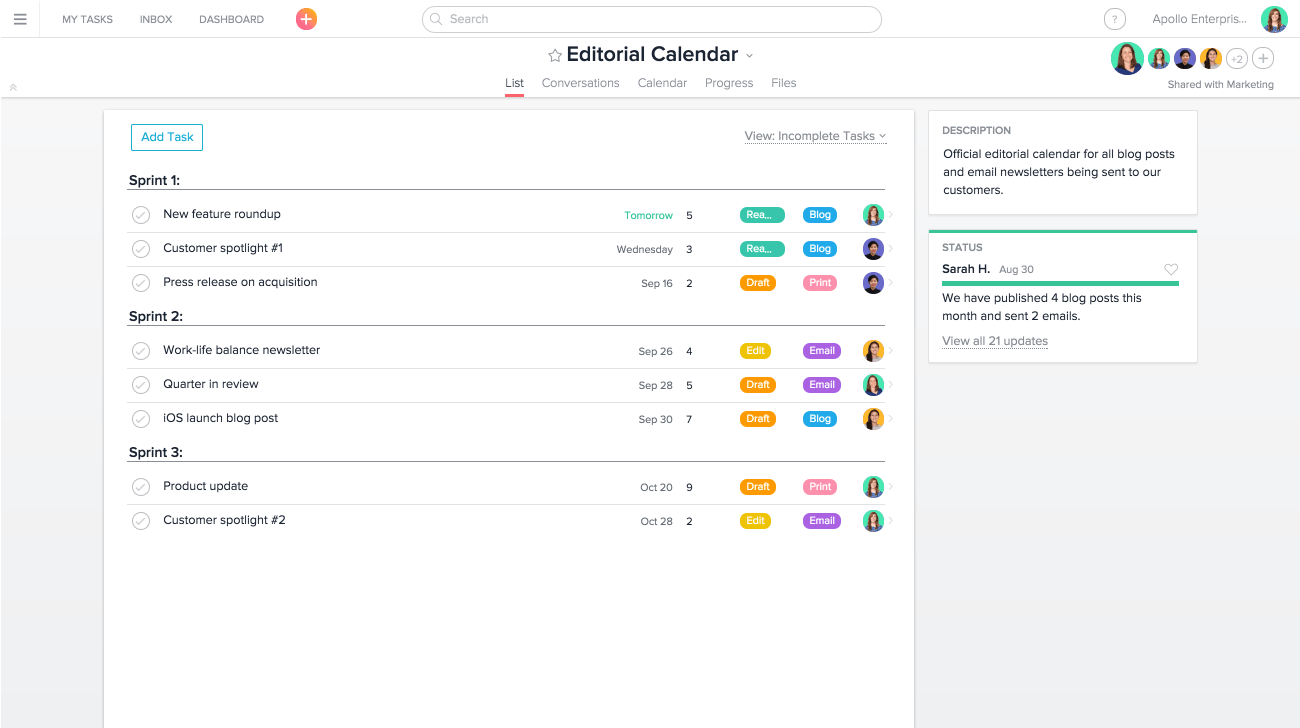I have an issue where by we have a dashboard which displays deadlines.
We just encountered a bit of a conundrum, with how to handle weekends.
You have event A, which has a deadline to be actioned in 24 hours. Event A is raised on 9:30am Thursday, there for the deadline is 9:30am Friday.
On Friday, the dashboard displays in the deadline column:
Today
Nothing happens Friday (down the pub probably), and on Monday, the dashboard displays:
3 days ago
When, for the business there's no work over the Saturday or Sunday, hence they have only missed the deadline by 1 day, not 3.
However, the issue comes, if the dashboard displays:
1 day ago
On the Monday, then people start to think the deadline was on Sunday? And the actual timestamp of the deadline is 9:30am Friday! So the two points do not match...
How best to display this?
- Just leave it as is, on the understanding that the deadline was in fact, actually, truthfully 3 days ago
- Adjust the deadline to be Sunday for the display?
- Have the two columns split, and have a separate calculation for the days ago, and one for the actual deadline? And then have to explain why Sunday was actually Friday.



Todaywhen in fact, it is actuallyFriday at 9:30am? Wouldn't this lead to missed deadlines?